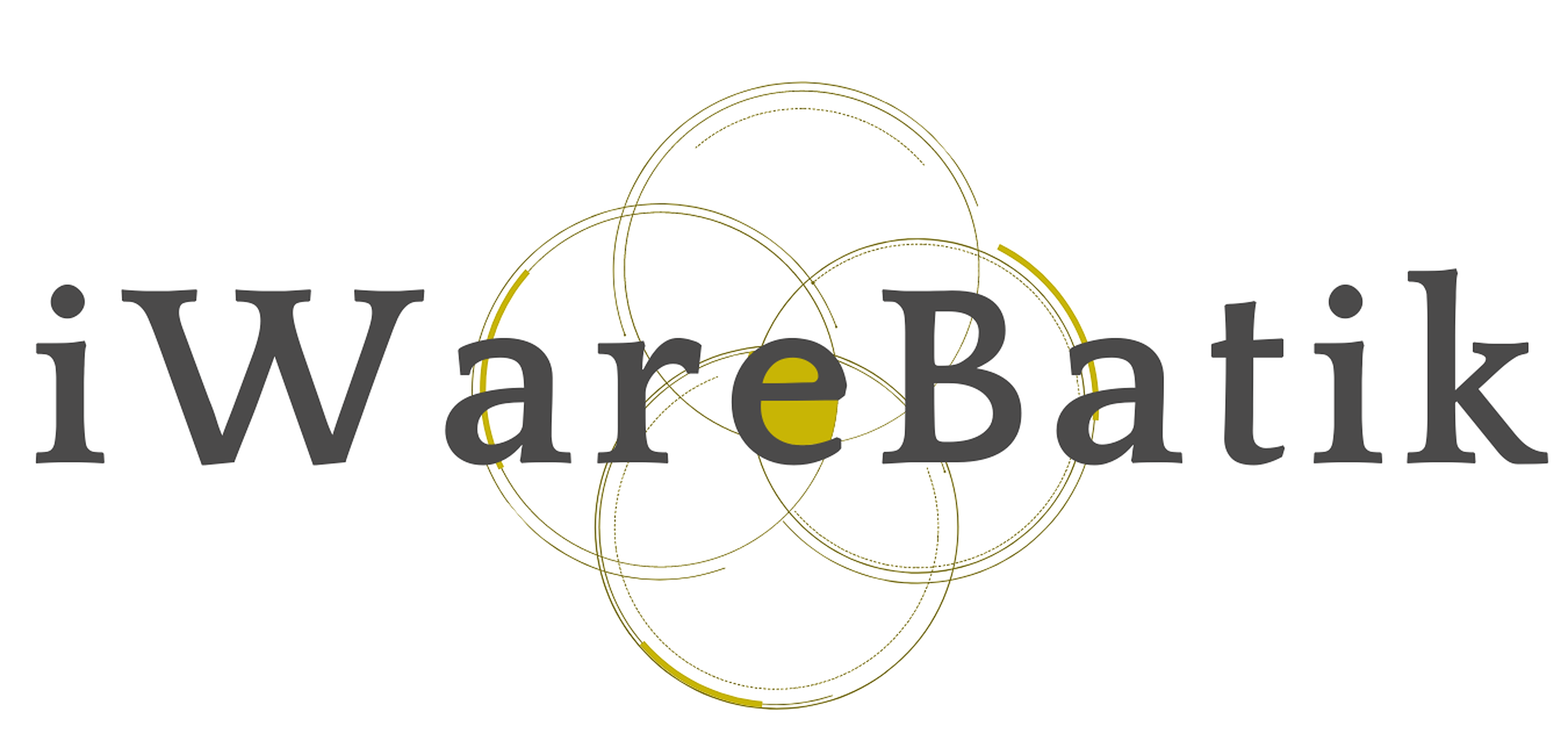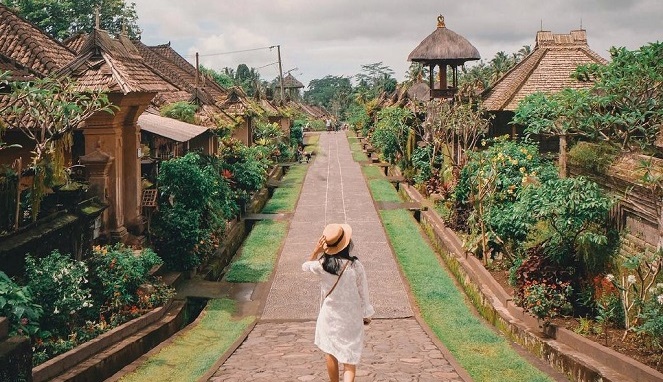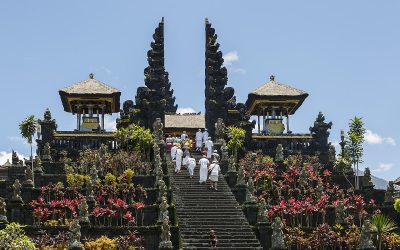Home / Batik Regions – Central Indonesia – Bali / Penglipuran Cultural Village
Cultural Destination
Embrace the spirit of the place!
Penglipuran Cultural Village
Penglipuran Ecotourism Village is located in Bangli District. It has an area size of 112 hectares. This tourist spot was awarded the third most beautiful and cleanest village in the world by New York’s Boombastic magazine. It is a unique and exotic environment full of interesting elements such as traditional Balinese housing and temples architecture neatly lined up, green bamboo forests, and cobbled streets. The layout of this village is adapted from the shape of Trimandala, three concentric circles denoting three zones with different levels of function and purity. Discover and enjoy the magic of this place!
Tourist Attractions in Bali
Besakih Temple
Besakih Temple is regarded as Bali’s ‘Mother temple’ – a grand
Bedugul Ulun Danu Beratan Temple
an excellent place for having spiritual soul discovery
Tanah Lot
Tanah Lot Temple is one of Bali’s most important landmarks, where
Bali
Batik Motifs
Merak Abyorhokokai
The peacock batik motif depicts the bird’s beauty as the focal point of
Buketan Bali
The Balinese bouquet (Buketan Bali) is a floral arrangement and the name is
Discover
Indonesian
Batik
Motifs
Malinau Cultural Festival
You will witness a unique competition that might not be found other than in
Pohon Hayat (Tree of Life)
The Batik motifs in Lampung are dominated by the acculturation of Buddhist and
Buketan Bali
The Balinese bouquet (Buketan Bali) is a floral arrangement and the name is
Salakanagara
Salakanagara batik motif illustrates the first kingdom in the Betawi land
Biji Kopi
The coffee seeds motif illustrates the pride of local coffee specialities in
Lok Baintan Floating Market
As you can imagine, the most authentic thing is that you can buy things and even
Paqbarre Allo
The word “Barre” means round and “Allo” means the sunlight. This motif is interpreted as
Gurdo Solo
Gurdo or garuda bird is the mount of the Indian god Vishnu. As the Sun Bird,
Tengkawang Ampiek
With its many advantages, the Dayaks use this leaf in ritual ceremonies. This plant is a symbol of
Kuda Kupang
Horses symbolize wealth. It contains noble values of virtuous characters that bring
Taiganja
Taiganja is a precious gold pendant that shows the social status of the Kaili family. It is
Jupri Kembang Teh
Kembang Teh illustrates the tendrils of tea plants that grow in the highlands of
Tubo Kelapa
Coconut tree is a symbol of a good character and strong mentality. It illustrates the more success a person, the more
Bintik Tujuh
The Bintik Tujuh (Seven Dots) motif has 7 white spots and green color gradation as
Gamolan
This motif illustrates Gamolan, a bamboo musical instrument of Lampung that is
Angsa Duo
According to legend, the Angso duo batik motif is a pair of swans that are believed to have led Princess
Lipaq Sabe
Lipaq Saqbe contains a simple geometric classical motif with various flower decorations. This textile is
Durian Pecah
Broken Durian motifs depict the foundation of faith. The second half signifies the mastery of
Tifa Totobuang
The batik motifs illustrate Maluku’s traditional music instrument called
Bekantan Pakis
This motif represents Pakis Haji (Polystichum setiferum), an endemic plant in
Gajah Way Kambas
The motif illustrates the Lampung’s natural reserve, the Way Kambas. it also symbolizes
Sandeq
Sandeq Boat is a symbol of the maritime importance of the West Sulawesi region. The greatness of
Tangerang Herang
Tangerang Herang motif is a symbol of Tangerang city. The Tangerang Herang batik motif consists of
Awan Berarak
Awan Berarak is a combination of Dayak motifs and Malay patterns. The word ‘Awan Berarak’ means the
Bale Lumbu
This motif signifies the welfare of the ancient Sasak society. Bale also symbolizes the
Gonggong Siput
Gonggong (Strombus Turturella) is one type of sea snail found around
Lontara
The Lontara script itself is a typical ancient script of Bugis and Makassar communities. History records that
Burung Bidadari
Bidadari birds are endemic birds in Halmahera. This motif represents an
Kawung
The Kawung motif was created by Sultan Agung Hanyokrokusumo (1593 – 1645) as a symbolic gift for
Tongkonan
Toraja’s traditional house is called Tongkonan. Tongkonan is a place for
Tampuk Manggis Sasirangan
The motif illustrates the philosophy of the mangosteen fruit, which is
Gumin Tambun
Based on Hindu mythology, this motif symbolizes lucks, abundant wealth, and
Sekomandi
Its philosophical meaning is the eternal union which refers to a saying “until death do us part”
Dayak Taghol
Dayak Taghol has a distinctive style of four curved lines and small dots. This motif represents
Wakatobi
It symbolizes the coastal beauty of the Wakatobi island and the symbol of Patra symbolizes
Kerawang Tegak Aceh
The Vertical Upright (Kerawang Tegak) Motif symbolizes a person who has a strong
Tenun Bima
The motifs are adopted from Bima woven textile. This pattern has received a great
Insang Ikan
Insang refers to the gills of the fish. This is a typical pattern of Malay ethnic who inhabits
La Galigo
La Galigo is a literary work of the Buginese Epic that has 300 thousand epic lines. It is considered even
Daun Sirih
This motif illustrates betel leaves that are used by Lombok communities as traditional
Manguni Minahasa
Manguni is identified as the symbol of the Minahasa people. Manguni is known as a
Kaharingan
The Kaharingan or ‘tree of life’ based on the Dayak tribes’ belief system. This tree symbolizes
Merak Ngeram
The hatching peacock motif has a very deep meaning which refers to the sacrifice and
Gonggong Beruntun
This motif illustrates that a person should maintain a positive attitude and
Pati-Pati Pinehiku
It symbolizes the hierarchy in society and the social status of the Mekongga
Ake Patra
Ake is related to the divinity and the composition of the universe. It is a symbol of
Jumputan Bintang
The word Jumputan means the tie-dye technique, while the word “Bintang” refers to
Gigi Haruan Lidi
The Gigi Haruan Lidi motif is taken from the name of the cork fish and is a symbol of
Hiu Taliyasan
Indonesia is also home to the world’s largest fish, the whale shark (Rhincodon typus). Hiu Taliyasan refers to
Bultiya
The word ‘Bultiya’ is an acronym of the three major tribes in North Kalimantan, namely
Singayaksa
The Singayaksa motif comes from the name of a place where Sultan Hasanuddin used to
Pinawetengan
The Pinawetengan Batik pattern was taken from a prehistoric inscription in
Karawo Mahkuta
Mahkuta refers to Gorontalo’s traditional crown. It represents noble characters of
Kain Cual
Cual textile tradition has existed since the 17th century. The word “Cual” refers to
Sido Mulyo
Sidomulyo is one of the classical motifs, which is specifically used for the bride’s costume in
Honai
The Honai is inspired by the traditional house of the Papuan community living in
Leuit Sijimat
This motif reflects the daily activities of the Baduy tribe in Banten. The main ornaments of batik motif consist of:
Keluak Daun Pakis
The word “Keluak” is a Minang language which means twisted or tangled. The Motif of
Tikar Natuna
The Tikar Natuna motif is adapted from the traditional making of pandanus mats in
Ikan tambal
The word “Ikan” refers to fish. The philosophical meaning of Ikan Tambal means is
Teguh Bersatu
This batik motif shows the strength of the people of Kupang. It also represents a sense of
Tanah Liek
The word “Tanah Liek” refers to clay in Minang language. It is also known as
Raja Ampat
Raja Ampat motif represents the marine life at Raja Ampat archipelago in
Mahkota Siger
Siger is the crown of a noblewoman in ancient time. It is a symbol of femininity, strength, and
Tabir Tanjung
Tanjung flower is a type of Cherry tree flower, which is commonly found in
Gedhog Kembang Waluh
a combination of Javanese cultural motif of the Majapahit kingdom (XII-XIV century) with
Cengkeh
The clove flower motif is the main commodity of the Tolitoli Regency. This motif represents
Besurek Rafflesia
The term “Basurek” refers to a textile that contains letters or inscriptions
Besurek Rembulan
This batik illustrates praise for God who created the wonderful universe
Sero Tangga
The Sero Tangga illustrates an endearing feeling and sacrifices of a person to fulfil
Pucuk Rebung Riau
Pucuk Rebung symbolizes heart determination in achieving goals, good luck, and
Desa Na Tolu
The Desa Na Tolu characteristic pattern symbolizes the Batak philosophy of existence and
Enggang Dayak
Local people beliefs that hornbills are an incarnation of the Commander of the Birds. It has supernatural
Wirasat
Wirasat or divine inspiration is a gift from God. This inspiration is symbolized by
Pala Salawaku
This motif illustrates the unique weapons of the Maluku region, namely
Sekar Jati
Sekar means flower and Jati refers to teak trees that symbolizes a strong mental character that






